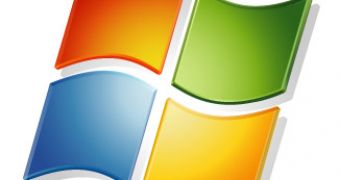In September, Microsoft admitted that it was secretly modifying files in the users' copies of Windows Vista and Windows XP. The Redmond company's stealthy updating practices were exposed by Windows Secrets, and following the initial reports, Nate Clinton, Program Manager Windows Update came clean and confirmed that no less than 18 files, nine for each Windows Vista and Windows XP, had been altered without user knowledge or consent in July alone. However, Clinton explained that the latest modifications introduced to both Vista and XP were not an isolated incident. In fact, the secret patches are intimately connected with the structure of Windows Update, as the service is configured to automatically check for updates. "This has been the case since we introduced the automatic update feature in Windows XP. In fact, WU has auto-updated itself many times in the past", Clinton stated.
"The upshot is that a longstanding procedure in Windows Update requires it to self-update before it is able to recognize that new updates are available (note: WU does not conduct a self-update event each and every time it checks for updates). This self-updating is done regardless of whether the user has enabled automatic checking, download and/or installation of updates. It does so in an effort to avoid WU misleading the user to think s/he is up-to-date simply because s/he was not receiving notification that updates are available. Put another way, WU cannot alert the user that there are security updates available if it is not in the necessary updated state that will allow it to recognize those updates (see "chicken and egg" dilemma)", Nick White, Microsoft Product manager stated at the time.
In Microsoft's perspective, the self-patching behavior of Windows Update, on which the company has been less than transparent, is essential to the overall health of the Windows operating system as it ensures that the platform will be served all security and non-security updates without problems. The Redmond company did not reference the fact that the stealthy patches could in any manner bring more harm than good to a copy of Windows. Microsoft is automatically serving patches "under the counter" to XP and Vista if the end users have configured Windows Updates with one of the following settings: Install updates automatically; Download updates but let me choose whether to install them and Check for updates but let me choose whether to download and install them.
The only way to avoid Microsoft altering your machine via WU without your consent is to opt for "Never check for updates." This is necessary as in take two of the report on the stealthy Windows Updates, Scott Dunn, the associate editor who broke the news in the first place, revealed that the silent patches can lead to updating problems, although they are designed to prevent such scenarios. Copies of Windows XP have been tested, and found to fail the deployment of further updates in case the operating system had been repaired prior to the stealthy modifications from Microsoft.

 14 DAY TRIAL //
14 DAY TRIAL //